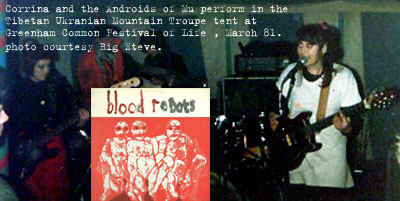Many years ago, an official letter was delivered to Puppy Mansions (Westbere Road). It came from the British Library and was addressed to the publishers of Kill Your Pet Puppy. It was a legal request for copies of said publication to be sent to the said institution. I think this made us a bit nervous – was Big Brother watching us? I don’t think any copies of KYPP ever reached the British Library.
But some how or other they must have got copies of other fanzines and similar subversive material and have used them to illustrate a section of their website on “History and Citizenship : Dreamers and Dissenters”
http://www.bl.uk/learning/histcitizen/21cc/citizenship.html
Which asks the question “What is counterculture?” to which the following is given as the / an answer. Just like punk used to be, as Crass might have said. The last two sentences are interestingly situationist as in ‘recuperation’. Is it possible to construct a DIY ‘avante garde aesthetic’ which rejects ‘production and consumption’ but still gets absorbed as normal by mainstream culture?
Note the two British Library spellign mistooks.
A countercultural action or expression communicates disagreement, opposition, disobedience or rebellion. A counterculture rejects or challenges mainstream culture or particualr elements of it.
This might mean:
- Protesting against a particular situation or issue
- Rebelling against the accepted or acceptable way of doing things
- Struggling for liberation when you are oppressed or marginalised
- Finding new ways to represent yourself when you are misrepresented or simply not represented
- Creating your own culture when you are dissatisfied with the culture that is made for you
In the 20th century, countercultural points of view were commonly expressed as action. The countercultural pamphlets, flyers, posters, newsletters and independent newspapers, fanzines or magazines are therefore the ephemera or ‘remains’ of a larger active expression. Often they were originally meant to serve immediate, sometimes urgent, purposes: to promote action, gather support or inspire change.
The ‘unacceptability’ of any countercultural expression is always short-lived. Sooner or later avant-garde aesthetics are embraced by the producers and consumers of mainstream culture and abosrbed into the ‘normal’.
